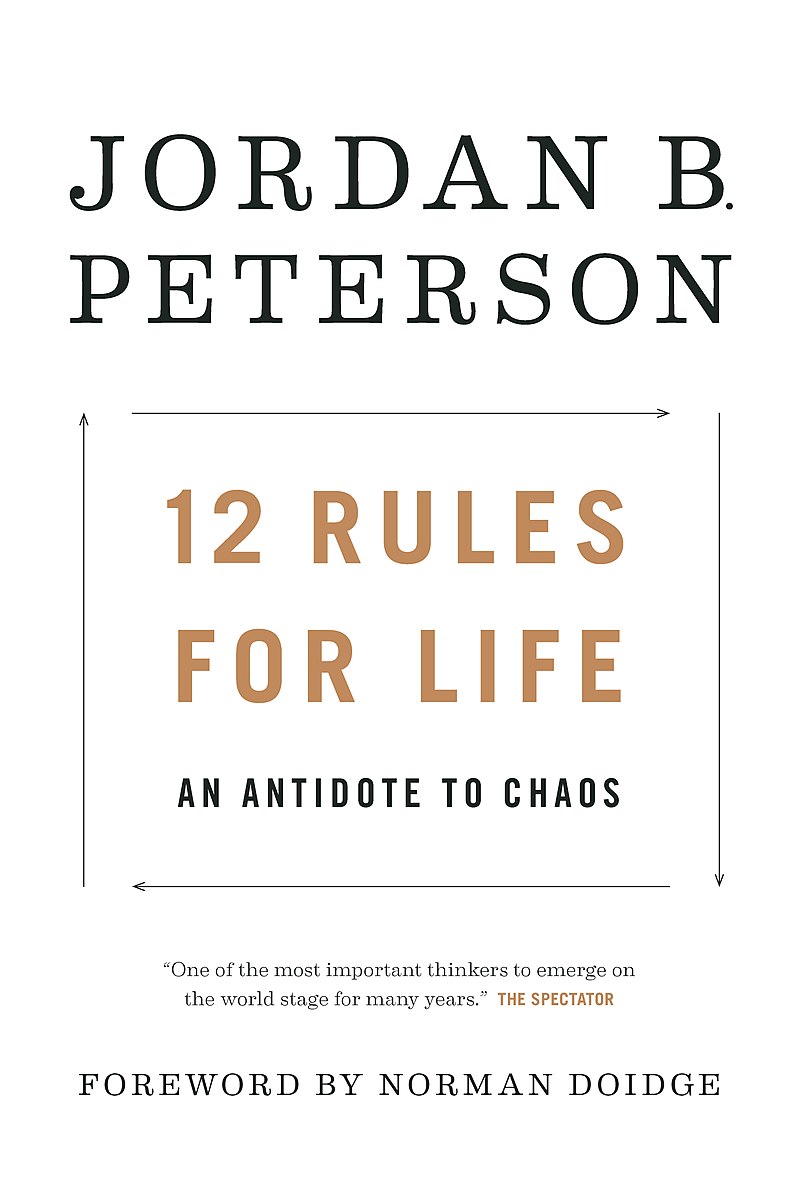
I guess this book falls under the category of “self-help”. I am not sure why I seem to be reading more of these types of books lately. The last one, The Four Agreements, just happened to be on my bookshelf when I was looking for something else, and it caught my eye. I am not saying that I don’t need self-help, but I bought this book because Jordan Peterson kept popping up on my social media news feeds he always seemed to be giving wonderful perspectives on difficult topics in video clips. Jordan Peterson is a psychologist by training, with a PhD in clinical psychology. He was an associate professor at Harvard and then a full professor at the University of Toronto. I am not sure of the status of his current employment, as he has gotten into some hot water for his seemingly constant presence in the current social media zeitgeist, but this book was quite successful, so I doubt you will find him anywhere with a tin cup at arm’s length.
As far as interesting reading goes, this was what I would consider an enthralling book. It always held my attention. As a self-help book, I feel that The Four Agreements was more useful in that I am able to remember and apply all the principals in The Four Agreements in my everyday life situations exactly as they are written. 12 Rules For Life gave me a kind of direction, but the principles are not as cut and dry in their application. The thing that surprised me most about the 12 Rules For Life is the many references to religious texts. There is no hint of it on the cover, or in the marketing of the book. Probably a wise move, as a book deemed to be a religious text may only appeal to a niche audience. As far as references to religious texts, Peterson does tend to grab more from the Christianity than other religions, but he certainly hits some Buddhist, Judaist, and Hinduist principles as well.
These are the rules:
- “Stand up straight with your shoulders back.”
- “Treat yourself like someone you are responsible for helping.”
- “Make friends with people who want the best for you.”
- “Compare yourself to who you were yesterday, not to who someone else is today.”
- “Do not let your children do anything that makes you dislike them.”
- “Set your house in perfect order before you criticize the world.”
- “Pursue what is meaningful (not what is expedient).”
- “Tell the truth – or, at least, don’t lie.”
- “Assume that the person you are listening to might know something you don’t.”
- “Be precise in your speech.”
- “Do not bother children when they are skateboarding.”
- “Pet a cat when you encounter one on the street. “
Rule 1 is akin to smiling when you are not feeling happy. The act of smiling will actually improve your mood.
Rule 2 is a reminder to step back and view yourself and your actions as a third-party observer – should you be drinking that much alcohol or eating that much fast-food?
Rule 3 is very important. Are your friends scumbags, or good people? They will strongly influence who you are. Make sure they are good.
Rule 4 means that you should not engage in comparisons with yourself and others. Just make sure you are better than you were yesterday and you will eventually find the high ground.
Rule 5 should be something like “don’t let things fester”. In other words do not ignore a situation or behavior until it has turned into an untamable monster.
Rule 6 is pretty obvious, but if you look at most comments on social media, it appears to be largely ignored.
Rule 7 is another rule that appears to be largely ignored nowadays. Immediate gratification is rarely the best path for you.
Rule 8, 9, and 10 are pretty self-explanatory, but are nevertheless important.
Rule 11 Refers to not Nerfing the world. Kids can be empowered by having to rely on their skill in the face of danger.
Rule 12 means to try take advantage of and find joy in the simple opportunities that life provides.
What I got out of this book, in a nutshell, is that you need a purpose. The most rewarding purpose is helping others. Self-improvement is also very important. You should always be working to be better than you were yesterday. You also need to find God. Life can be hard sometimes. Belief in a higher power can often be the only thing that will get you through tough situations. If you do not intend to read this book, please re-read this paragraph a few times. When employed, these simple ideas will improve your life.

